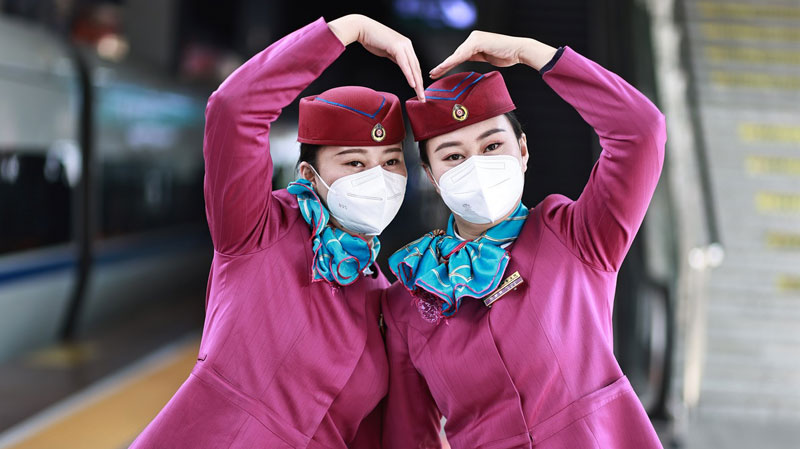Every reason for China to take reciprocal measures - FM comments on discriminatory move by S.Korea
China firmly opposes discriminatory restrictions by certain countries against travelers from China, and has every reason to take necessary reciprocal measures, the Chinese Foreign Ministry said in response to rumors that China could conduct nucleic acid tests on travelers from South Korea.
Mao Ning, spokesperson for the ministry, has made the comments over the discriminatory entry restrictions by South Korea for two consecutive days on Monday and Tuesday.
She noted at a regular press briefing on Tuesday that a few countries have imposed unscientific entry restrictions on travelers from China since China downgraded the management of COVID-19 from Class A to Class B on January 8.
With utmost sincerity and in a fact-based attitude, China has fully communicated with relevant countries and elaborated on the scientific and rational nature of China's measures to optimize and adjust COVID-19 epidemic prevention and control, as well as the current epidemic situation in China, the spokesperson stressed.
However, regrettably, certain countries still insist on discriminatory entry restrictions against China. China firmly opposes this and has every reason to take necessary reciprocal measures, Mao stated.
She said that China always firmly opposes politicizing epidemic prevention and control and believes that discriminatory restrictions against China should be lifted.
China is ready to work with other countries to create more convenience for the normal exchanges of Chinese and foreign personnel, Mao noted.
Mao's remarks came in response to a reporter from South Korean media outlet Yonhap News Agency who cited allegations saying that the "Chinese government would conduct nucleic acid tests on all travelers from South Korea."
Media reported on Friday that South Korea said it will continue to restrict the entry of short-term travelers from China through the end of February over concerns that the spread of COVID-19 in China may worsen following the Chinese New Year holidays. South Korea in early January stopped issuing most short-term visas at its consulates in China.
In response to South Korea's extension of the entry restrictions, Mao remarked at Monday's press conferencethat this move is not conducive to personnel exchanges and cooperation between the two countries. We hope that South Korea will end the unreasonable moves as soon as possible, Mao said.
Insiders warned that, as China is ready to resume outbound group tours in February, the extended restrictions of South Korea are likely to make it miss the tourism dividend brought by massive pent-up demand for international travel from Chinese travelers, when many countries are yearning for economic growth with the contribution of Chinese tourists in the post-epidemic era.
South Korean Prime Minister Han Duck-soo suggested on Tuesday that Seoul could consider lifting the restriction on short-term visas for travelers from China before the end of February if the number of COVID infections in China is manageable, as the travel and tourism sectors hope for a rebound in visitors, Yonhap reported.
"China used to account for 20 to 25 percent of Korean Air's passenger and cargo businesses before COVID," Korean Air Deputy General Manager Kim Ah-hyun was cited by Reuters as saying. "We hope travel restrictions between the two countries are eased soon to allow more routes and flights."
Facts prove that China witnessed warm and joyful Spring Festival holidays with its airports, bus terminals and train stations crowded and migrants reuniting with their family members, unlike Western media speculation that the country would experience an "epidemic tsunami" following the Spring Festival travel rush.
A Chinese Center for Disease Control and Prevention report released on Saturday said the number of positive tests reached a peak on December 22, 2022 at 6.94 million, and dropped to a low of 15,000 on January 23, citing nucleic acid test results reported by nationwide provincial authorities.
Photos
Related Stories
- China suspends short-term visa issuances to South Koreans
- Chinese FM holds phone talks with Russian, Pakistani, S. Korean FMs respectively
- China's Jilin delegation wraps up S.Korea trip for trade cooperation
- Xi meets S. Korean President Yoon Suk-yeol
- Premier Li says China ready to work with ROK to promote healthy, stable bilateral ties
- Reception held in Seoul to mark 30th anniversary of China-S.Korea diplomatic ties
Copyright © 2023 People's Daily Online. All Rights Reserved.









